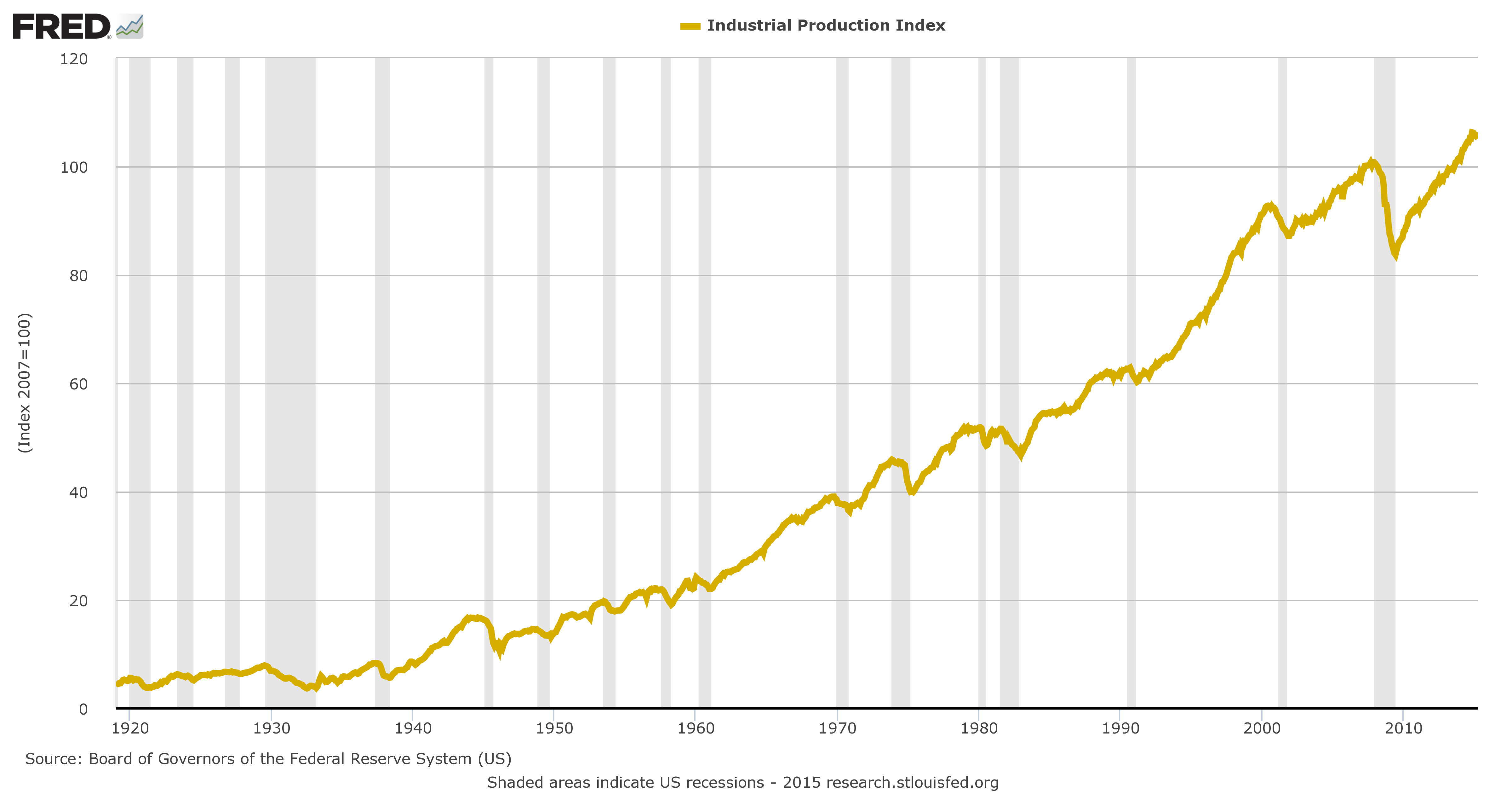Something that's baffled me in this election is how much Trump's campaign seems to be built around the notion that part of "making America Great Again" is bringing back jobs that have been lost overseas due to manufacturing. Aside from how much this is actually true, isn't a fundamental tenet of conservatism a belief in markets, free trade, and that workers simply need to adapt?
Matt Yglesias argues that this is exactly what workers have been doing, and that manufacturing, per say, hasn't really been in decline at all. He points out that perception could be misguiding us because we tend to focus on all the consumer goods we say that don't say "made in America" on their tags.
Consumer goods and cars are two big things people buy, and both of them are things the US imports more of than we export.
Consumer goods and cars are two big things people buy, and both of them are things the US imports more of than we export.
Meanwhile, 65 percent of our exports are either capital goods or industrial supplies — in other words, machines and equipment that companies buy to conduct their businesses. Sometimes that's something like a computer that might also be sold to a consumer. But more typically we are talking about products that aren't sold in stores or marketed to normal people. You've probably never bought a Boeing 737, for example, and almost certainly never will. But airplanes are very expensive. The sale of a single new passenger jet contains as much value of industrial output as a truly tremendous pile of shoes or toys or other consumer goods.
He also provides a couple of interesting charts:
We don't seem to see here the kind of devastating losses we all imagine when we picture rusty, hollowed-out factories.
This one gets at a better picture of what we mean when we say "manufacturing" and talking about imports and exports.
I haven't been paying enough attention - but isn't Trump pretty anti-free trade, and is this just another thing conservatives are holding their noses from? Last I checked, conservatism was all about embracing creative destruction - halcyon me remembers well listening to AM conservative radio in the 90's telling displaced workers to get over it, quit bellyaching and get retrained.
However it seems progressives are the ones who've wanted to embrace a compassionate free-trade in which government tries to facilitate the retraining and support of the displaced. Trump I understand wants to keep the jobs from leaving simply through protectionism and tax breaks. Not sure this is a very accurate vision of how economic paradigm shifts actually occur - see: automation, AI, etc.
Personally, I'm all for disruption. But I want to make sure people get the support they need in the process. I'm reminded of the Oregon law that required gas be pumped by employees, not customers. I found this idiotic, as someone perfectly capable of pumping gas myself. As much as I sympathized with the poor sap pumping my gas getting employment, the sad reality is that he made a poverty wage doing a job that was unnecessary. I would much prefer it if he had access to job training that would allow him to find long-term, useful employment. Barring that, a government works program that provided a non-poverty wage doing something actually useful would be a good start. Lord knows there was infrastructure in Portland that could have been serviced while I had nothing better to do than sit on my ass in my car for 5 minutes.
Of course, Trump, as a "conservative", wouldn't go for any of this. It is much easier for him to simply punt to the notion of tax cuts solving everything. But he appears to be in a bind here: he gets to sell himself as the avatar of the displaced working white man, and all the racial resentment he can squeeze out of that, but without being on the hook for any actual solutions.


No comments:
Post a Comment